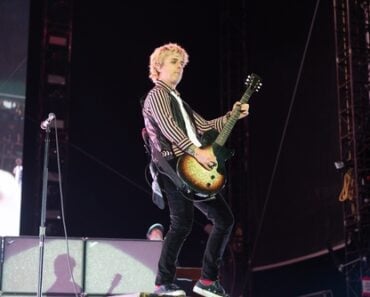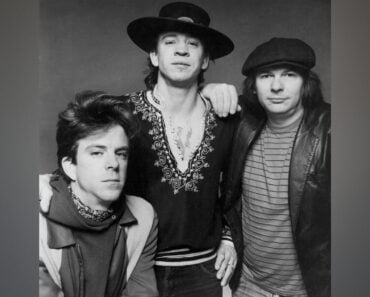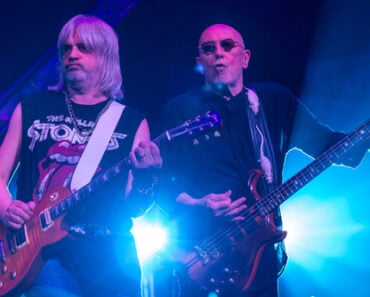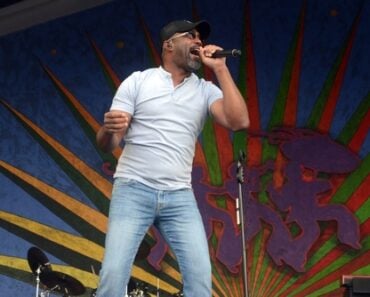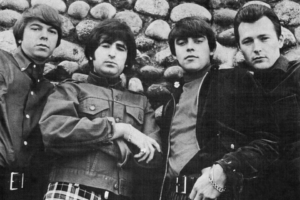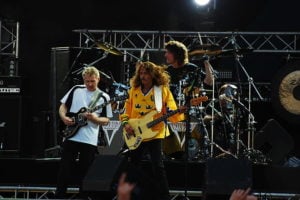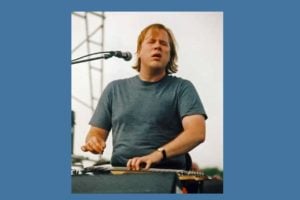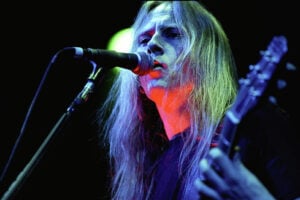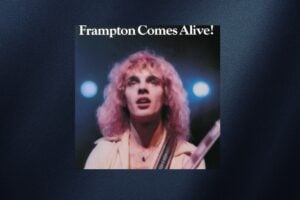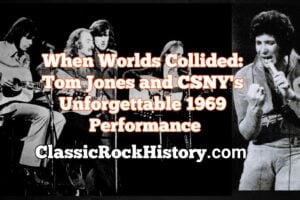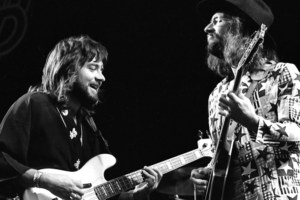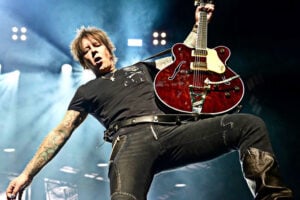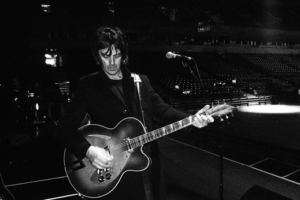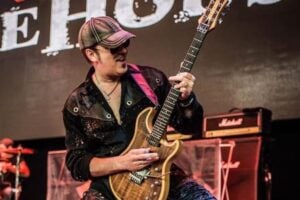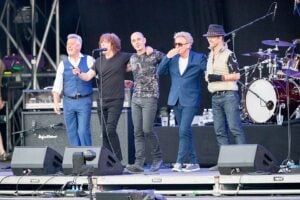
Feature Photo: Sven Mandel, CC BY-SA 4.0 <https://creativecommons.org/licenses/by-sa/4.0>, via Wikimedia Commons
Manfred Mann’s Earth Band originated in London, England, when keyboardist Manfred Mann decided to pursue a heavier, more experimental sound that would define their career for over five decades. Throughout their extensive history, the Earth Band has released numerous studio albums and maintained an active touring schedule that continues to this day.
The band has experienced several lineup changes and temporary disbandments throughout their career, most notably in 1987 when commercial disappointment led to a brief hiatus. However, Mann reformed the group in 1991 and has maintained consistent activity since then. Their discography spans from their 1972 debut album through multiple decades of releases, including both studio recordings and live albums that document their evolution as performers.
With a rotating cast of talented musicians joining Mann’s consistent keyboard foundation, the Earth Band has featured dozens of members across different eras. Some musicians have returned for multiple stints with the group, while others contributed to specific albums or tours before pursuing other projects. This comprehensive examination covers every musician who has been part of the Earth Band’s journey, from founding members to current lineup participants.
Manfred Mann
Manfred Mann has served as the constant foundation of the Earth Band since its formation in 1971, remaining the sole consistent member throughout all lineup changes and musical evolution. Born Manfred Sepse Lubowitz, he provides keyboards, backing vocals, and occasional lead vocals for the band. Mann appears on every Earth Band release from their 1972 debut album through all subsequent studio and live recordings. His keyboard work and musical direction have shaped the band’s progressive rock sound, incorporating elements of jazz fusion, electronic music, and blues throughout different periods.
Beyond the Earth Band, Mann achieved significant commercial success in the 1960s with his earlier group Manfred Mann, which scored multiple hit singles including covers of Bob Dylan songs and original compositions. His career spans both the British Invasion era and the progressive rock movement, making him a veteran of multiple musical generations. Mann’s decision to form the Earth Band represented a deliberate shift toward more complex, album-oriented music compared to his earlier pop success.
Mick Rogers
Mick Rogers joined the Earth Band as guitarist and vocalist during two separate periods, first from 1971 to 1975 and again from 1983 to the present day. During his initial tenure, Rogers contributed guitar and both backing and lead vocals to the band’s early albums, including their 1972 debut, Glorified Magnified, The Good Earth, Nightingales & Bombers, and The Roaring Silence in 1976. His guitar work helped establish the heavier sound that distinguished the Earth Band from Mann’s earlier pop group.
After leaving in 1975, Rogers returned to the band in 1983 and has remained a core member since then. His second stint began with the Budapest Live album in 1984 and continued through Criminal Tango, plus all subsequent releases. Rogers has become one of the band’s longest-serving members aside from Mann himself. Outside the Earth Band, Rogers has maintained various musical projects and collaborations, though his association with Mann’s group has remained his primary musical focus during his active years with them.
John Lingwood
John Lingwood, born February 18, 1951, in Wembley, London, began his professional drumming career in 1968 after being influenced by major rock acts of the 1960s including The Beatles, The Rolling Stones, and The Jimi Hendrix Experience. He first joined the Earth Band from 1979 to 1987, contributing drums and percussion to several key albums including Chance, Somewhere in Afrika, Budapest Live, Criminal Tango, and Masque. His drumming provided the rhythmic foundation during a particularly productive period for the band.
Before joining the Earth Band, Lingwood played with Steamhammer from 1972 for two and a half years, followed by work with Stomu Yamashta’s East Wind and Leo Sayer in 1974. Throughout his career, he has collaborated with numerous notable musicians including Roger Chapman, Maddy Prior, and Elkie Brooks, maintaining some of these relationships through occasional performances. After leaving the Earth Band in 1987, Lingwood performed with Company Of Snakes from 1998 to 2002, appearing on their live album Here They Go Again and studio release Burst the Bubble.
Lingwood rejoined the Earth Band in 2016 as a replacement for Jimmy Copley, who had been diagnosed with leukemia and passed away in 2017. His return marked a reunion with the band after nearly three decades, bringing his extensive experience and familiarity with the Earth Band’s catalog back to their live performances and any subsequent recordings.
Steve Kinch
Steve Kinch was born May 17, 1955, and began his musical journey on guitar before switching to bass at age 18 when his friend Steve Demetri’s band Stallion needed a bassist. This instrument change proved permanent and shaped his subsequent career path. He gained experience through various bands including Factory with Andy Qunta, Tony Qunta, and Lol Cooksey, plus the short-lived Head On project during the late 1970s.
Kinch’s professional career expanded when he joined Hazel O’Connor’s band in 1980 through connections with Andy Qunta and saxophonist Wesley Magoogan. This engagement included tours, television appearances, album recording, and several hit singles. He also worked briefly with Jim Capaldi’s band in 1984, though a planned U.S. tour was canceled, and later contributed to Capaldi’s final album Poor Boy Blue.
Kinch joined the Earth Band in 1985 after successfully auditioning for the bassist position, with Andy Qunta assisting during the audition process. He appeared on Criminal Tango, sharing bass duties with other musicians since parts of the album were already recorded. His first live performance with the Earth Band was March 24, 1986, in Woking, Surrey, launching the Criminal Tango tour. Between 1987 and 1991, he toured with The Rubettes during the Earth Band’s hiatus. When Mann reformed the band in 1991, Kinch returned and contributed to Soft Vengeance in 1996 and the live album Mann Alive. He has remained an integral part of the Earth Band’s lineup and continues performing with them regularly.
Robert Hart
Robert Hart joined the Earth Band in 2011 as lead and backing vocalist plus guitarist, representing the most recent addition to the band’s core lineup. Despite being with the band for over a decade, Hart has not yet appeared on any official Earth Band studio releases, though he has likely contributed to live recordings and performances during his tenure. His role encompasses both vocal duties and additional guitar work, complementing Mick Rogers’ established guitar presence.
Hart’s addition to the lineup occurred during a period when the Earth Band was maintaining regular touring schedules while working on various projects. His vocal contributions have become part of the band’s live sound, though the lack of major studio releases during his time with the group means his recorded contributions remain limited to live performance documentation.
Chris Slade
Chris Slade served as the Earth Band’s drummer from 1971 to 1978, making him one of the founding members who helped establish the band’s early sound. His drumming, percussion, and backing vocals appeared on all Earth Band releases from their 1972 debut through Watch in 1978. Slade’s powerful drumming style contributed significantly to the heavier sound that distinguished the Earth Band from Mann’s earlier pop group, particularly on albums like The Roaring Silence which featured their hit version of Bruce Springsteen’s “Blinded by the Light.”
After leaving the Earth Band, Slade achieved considerable success with other major rock acts. He became the drummer for AC/DC during a crucial period, playing on their album The Razors Edge and touring extensively with the band. Slade also worked with other notable musicians throughout his career, establishing himself as one of rock’s most respected drummers. His time with the Earth Band represents an important early chapter in a career that would span decades and include work with multiple legendary rock acts.
Colin Pattenden
Colin Pattenden served as the Earth Band’s bassist from 1971 to 1977, making him another founding member who contributed to the band’s early development. His bass playing appeared on all releases from the 1972 debut album through The Roaring Silence in 1976. Pattenden’s bass work provided the low-end foundation for the band’s progressive rock explorations and helped anchor their more complex musical arrangements.
Pattenden’s departure in 1977 marked the end of the original Earth Band rhythm section, as his tenure overlapped significantly with Chris Slade’s drumming years. His contributions to the band’s early albums helped establish their musical identity during a period when they were transitioning from Mann’s pop past to their more ambitious rock direction.
Chris Thompson
Chris Thompson joined the Earth Band as vocalist and guitarist, serving during two separate periods from 1975 to 1986 and again from 1996 to 1999. His powerful vocals became a defining element of the Earth Band’s sound during some of their most successful years. Thompson appeared on all releases from The Roaring Silence in 1976 through 2006, with the notable exception of Masque in 1987. His vocal performance on “Blinded by the Light” helped make it one of the band’s biggest international hits.
Thompson’s first period with the band coincided with their greatest commercial success, as his voice became synonymous with the Earth Band’s most recognizable songs. After leaving in 1986, he returned for a second stint from 1996 to 1999, contributing to releases during the band’s reformed period. Outside the Earth Band, Thompson has maintained a successful solo career and worked with various other musicians, though his association with Mann’s group remains among his most notable achievements.
Dave Flett
Dave Flett served as the Earth Band’s lead guitarist from 1975 to 1979, contributing to The Roaring Silence in 1976 and Watch in 1978. His guitar work appeared during a particularly successful period for the band, including their breakthrough commercial success with “Blinded by the Light.” Flett’s lead guitar contributions complemented the band’s evolving sound as they incorporated more complex arrangements and longer instrumental passages.
Flett’s tenure with the Earth Band was relatively brief but occurred during important years for the band’s development and commercial recognition. His guitar work contributed to albums that expanded the band’s audience and helped establish their reputation beyond their earlier incarnation’s pop success.
Pat King
Pat King had a unique relationship with the Earth Band, serving first as bassist and backing vocalist from 1977 to 1982, then returning as the band’s lighting designer from 1991 until his death in 2022. During his initial period as a musician, King contributed bass and vocals to Watch in 1978, Angel Station in 1979, and Chance in 1980. His transition from performer to crew member demonstrated his ongoing commitment to the band’s success even after stepping back from performing duties.
King’s long association with the Earth Band spanning over four decades made him one of their most loyal collaborators. His work as lighting designer helped create the visual atmosphere for the band’s live performances during their reformed years. His death in 2022 marked the end of one of the longest continuous relationships between the Earth Band and any individual contributor.
Steve Waller
Steve Waller served as guitarist and vocalist for the Earth Band from 1979 to 1983, contributing to Angel Station in 1979, Chance in 1980, Somewhere in Afrika in 1982, and Budapest Live in 1984. His guitar work and vocal contributions came during a period when the band was exploring different musical directions and maintaining their recording and touring activities. Waller’s death in 2000 ended what had been a significant contribution to the band’s early 1980s period.
Waller’s tenure with the Earth Band occurred during years when they were working to maintain momentum following their major commercial breakthrough. His musical contributions helped bridge different eras of the band’s development as they continued evolving their sound and approach to recording and performing.
Geoff Britton
Geoff Britton served as drummer for the Earth Band from 1978 to 1979, contributing to Angel Station in 1979. His tenure was relatively brief, representing the transition period between Chris Slade’s departure and the arrival of subsequent drummers. Britton’s drumming appeared during a time when the band was maintaining their recording schedule and continuing to develop their progressive rock approach.
Britton’s brief time with the Earth Band came during a period of lineup adjustments as the band worked to maintain continuity following the departure of founding members. His contributions to Angel Station helped maintain the band’s recording momentum during this transitional period.
Matt Irving
Matt Irving served as bassist and backing vocalist for the Earth Band from 1982 to 1983, contributing to Somewhere in Afrika in 1982 and Budapest Live in 1984. His tenure was brief but occurred during an active period for the band’s recording and performance schedule. Irving’s death in 2015 marked the loss of another musician who had contributed to the Earth Band’s extensive catalog during their continuing evolution.
Irving’s time with the band represented part of the ongoing lineup changes that characterized different periods of the Earth Band’s history. His bass work contributed to albums that maintained the band’s presence during the early 1980s as they continued developing their musical approach.
Shona Laing
Shona Laing contributed vocals to the Earth Band’s 1982 album Somewhere in Afrika during 1983, representing a brief but notable collaboration. Her vocal contributions added a different dimension to the band’s sound during this period, though her association with the group was limited to this specific project. Laing’s work with the Earth Band occurred during a time when the band was incorporating various guest musicians and exploring different vocal approaches.
Laing’s brief involvement with the Earth Band demonstrates the various collaborations that occurred during their continuing musical development. Her vocal contributions to Somewhere in Afrika helped expand the album’s sonic palette during a period of ongoing experimentation for the band.
Durban Betancourt-Laverde
Durban Betancourt-Laverde served as bassist for the Earth Band from 1986 to 1987, contributing to Criminal Tango in 1986 and Masque in 1987. His tenure came during the band’s later 1980s period, when they were continuing their recording activities but facing changing musical landscapes. Betancourt-Laverde shared bass duties on Criminal Tango with other musicians, as parts of the album were recorded with different bassists.
His work appeared during the final years before the band’s temporary disbandment in 1987, making his contributions part of the Earth Band’s last recordings before their hiatus. Betancourt-Laverde’s bass work helped maintain the band’s rhythm section during this transitional period in their history.
Maggie Ryder
Maggie Ryder contributed vocals to the Earth Band during 1987, appearing on both Masque in 1987 and later on Soft Vengeance in 1996. Her vocal work spanned the band’s final album before their hiatus and their return album after reformation. This unique position allowed her to contribute to both the end of one era and the beginning of another for the Earth Band.
Ryder’s vocals appeared during significant transition points in the band’s history, making her contributions particularly notable for spanning different phases of their development. Her work on both Masque and Soft Vengeance demonstrates the continuity of some musical relationships despite the band’s temporary disbandment.
Noel McCalla
Noel McCalla served as vocalist for the Earth Band during two periods, from 1991 to 2009 and again in 2010. His extensive tenure made him one of the longer-serving vocalists in the band’s history, contributing to Soft Vengeance in 1996, Mann Alive in 1998, and 2006 in 2004. McCalla’s voice became associated with the Earth Band’s reformed period, helping to reestablish their presence after the late 1980s hiatus.
McCalla’s long association with the band provided vocal continuity during their return to regular recording and touring activities. His contributions spanned multiple albums and represented a stable element in the lineup during years when the Earth Band was working to maintain their relevance in changing musical landscapes.
Clive Bunker
Clive Bunker served as drummer for the Earth Band from 1991 to 1996, contributing to Soft Vengeance in 1996. His drumming helped reestablish the band’s rhythm section after their reformation in 1991. Bunker brought considerable experience to the Earth Band, having previously achieved fame as the original drummer for Jethro Tull during their early successful period.
Bunker’s association with the Earth Band represented a significant addition to their reformed lineup, as his reputation and experience with progressive rock helped validate their return to active recording and performing. His work on Soft Vengeance contributed to the album that marked the Earth Band’s successful comeback after their temporary disbandment.
John Trotter
John Trotter served as drummer for the Earth Band from 1996 to 2000, contributing to Mann Alive in 1998. His tenure followed Clive Bunker’s departure and maintained the band’s rhythm section during the late 1990s. Trotter’s drumming appeared on the live album that documented the Earth Band’s continued touring activities during this period.
Trotter’s time with the band occurred during years when they were maintaining regular performance schedules and working to build on the momentum created by their successful reformation. His contributions to Mann Alive helped document this active period in the band’s renewed career.
Richard Marcangelo
Richard Marcangelo served as drummer for the Earth Band from 2000 to 2002, also contributing to Soft Vengeance in 1996 despite this predating his official tenure with the band. His drumming provided continuity for the Earth Band’s rhythm section during the early 2000s, maintaining their ability to perform and record during this period.
Marcangelo’s involvement with both earlier and later Earth Band projects demonstrates the complex relationships that developed between the band and various musicians over their extended history. His contributions helped maintain the band’s activities during the transition into the new millennium.
Pete May
Pete May served as drummer for the Earth Band in 2002, though his tenure was brief and he did not appear on any official releases during this time. His involvement with the band was cut short by his death in 2018, ending what might have been a longer association with the group. May’s brief time with the Earth Band occurred during a period of ongoing lineup adjustments.
Despite his short tenure, May’s involvement with the Earth Band demonstrates the continuing evolution of their lineup during the 2000s. His death in 2018 marked the loss of another musician who had been part of the Earth Band’s extended family of contributors.
Geoff Dunn
Geoff Dunn served as drummer for the Earth Band from 2002 to 2007, contributing to 2006 in 2004. His drumming provided stability for the band’s rhythm section during the mid-2000s, helping to maintain their recording and touring activities. Dunn’s tenure occurred during a period when the Earth Band was continuing to balance new material with performances of their established catalog.
Dunn’s work with the Earth Band represented part of their ongoing efforts to maintain active status during the 2000s. His drumming contributions helped support the band’s continued presence in live performance settings and occasional recording projects during this period.
Jimmy Copley
Jimmy Copley served as drummer and percussionist for the Earth Band from 2007 to 2015, though he did not appear on any official releases during this period. His tenure was ended by his diagnosis with leukemia, and he passed away in 2017. Copley’s death led to John Lingwood’s return to the band as his replacement, creating a connection between different eras of the Earth Band’s history.
Copley’s time with the band occurred during years when they were maintaining regular touring schedules even without major new releases. His illness and subsequent death affected the band personally and professionally, leading to the reunion with former member Lingwood who stepped in to continue the band’s activities.
Peter Cox
Peter Cox served as vocalist for the Earth Band from 2009 to 2011, providing vocal duties during a transitional period in the band’s lineup. His tenure occurred during years when the band was maintaining performance activities while working through various personnel changes. Cox’s involvement with the Earth Band was relatively brief but contributed to their continuing live presence.
Cox’s time with the band demonstrated their ongoing commitment to maintaining vocal excellence despite the various changes in personnel that characterized different periods of their history. His contributions helped bridge the gap between different vocalists and maintain the band’s ability to perform their extensive catalog.
Check out similar articles on ClassicRockHistory.com Just click on any of the links below……
Chris Slade: The ClassicRockHistory.com Interview
Top 10 Manfred Mann Songs
Read More: Artists’ Interviews Directory At ClassicRockHistory.com
Read More: Classic Rock Bands List And Directory



